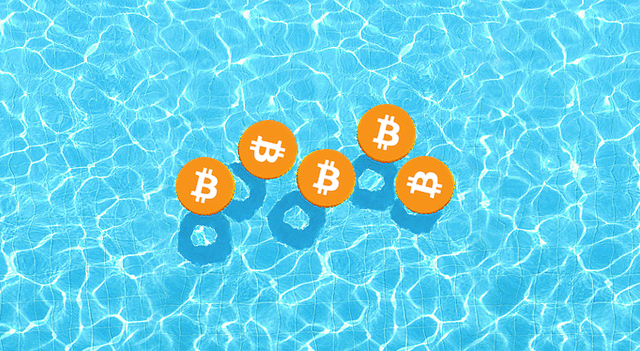Bitcoin is a network and payment system, whose currencies are completely digital. Bitcoin is the first conception of “cryptographic currency”, described in 1998 by Wei Dai in the electronic mail list “cypherpunks”, where he proposed the idea of a new type of money that used cryptography to control its creation and transactions, instead of a centralized authority.
The first specification of the Bitcoin protocol was published by Satoshi Nakamoto in 2009. Satoshi left the project at the end of 2010 without revealing much about him. Since then, the community has grown exponentially and has many developers around the world.
Unlike traditional money, which needs a central entity to control the flow and supply of money (banks), bitcoin is supported by a complete blockchain. Each block is a transaction and is linked to another block through a cryptographic operation within the distributed bitcoin network, so that by following the sequence of blocks, we arrive to the first block, which was extracted by a miner. In this way all the blocks are fully identified in the network and it is impossible to have a fake block in the network.
The total supply of bitcoins is approximately 21 million (the maximum number of bitcoins that can exist), calculated by mathematical formula. It is expected that by the use and acceptance of Bitcoins as a form of payment among the world population, has a positive effect in the price of the bitcoin. The current price of bitcoin is approximately 8,000 USD, however due to the constant increase in bitcoin price, it is expected to greatly increase in the coming months and years.
How are the transactions with Bitcoins?
To explain it in a simple way we will take as an example two users: Juan and Alberto. If Juan sends bitcoins to Alberto from his wallet, a transaction is generated, which is represented in the bitcoin network as a block. This block is transmitted to the entire bitcoin network to obtain confirmation and thus transfer the money, which happens once the transaction is approved and the block is attached to the chain, so that it becomes permanent. Once the block is added to the chain, Alberto receives his bitcoins in his wallet.
Obviously you need a place to store your bitcoins amounts, this place is called a wallet. A wallet is a cryptographic representation and consists of a pair of keys: a public key and a private key. The address of the wallet is public and it is the symbolic place where the bitcoins are received when making the transaction (since in fact they are in the chain of blocks and a specific amount of the block is associated to the address), while the private key is confidential and is necessary to sign a transaction. All transactions must be signed before being sent to the network so that they are not rejected.
And how do I get Bitcoins?
Currently there are several ways to get bitcoins, among which are the following:
- Buy Bitcoins: It is the simplest way to get bitcoins, to buy bitcoins the seller offers a fixed price by unit for sale in conventional currency along with the amount you want to sell and the buyer that accepts the purchase, gets their bitcoins. Purchases can be made directly or through a web platform or exchange.
- Exchange Bitcoins: Through an exchange platform, the user exchanges another cryptocurrency or asset for a fixed price by unit in terms of the asset with another user of the exchange and get the amount of bitcoins wanted.
- Bitcoin Mining: You can create transaction blocks for the bitcoin network, receiving by reward an amount of bitcoins for the mined transaction. Due to the current difficulty of mining a block, it is required to have adequate equipment (hardware) to mine transactions or integrate into a mining pool to facilitate the activity.
What should I do with my Bitcoins?
Currently Bitcoins are used mostly as a investment form to trade with other cryptocurrencies to get profits, however there are several establishments around the world that accept bitcoins as a form of payment. With the emergence of other cryptocurrencies, it is expected that a global culture will be generated where bitcoins become a generalized authorized form of payment, decentralized and without any influence of the government, which unfortunately is one of the main challenges, due to their regulations and some of the governments tries to keep them away from the current economic system.

